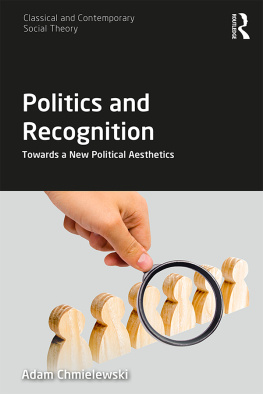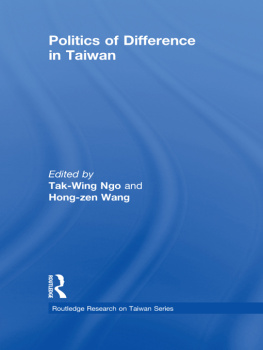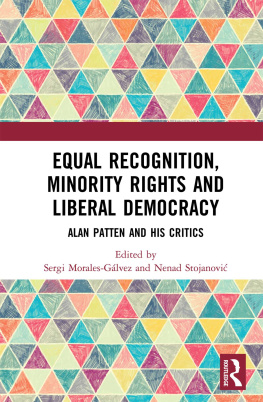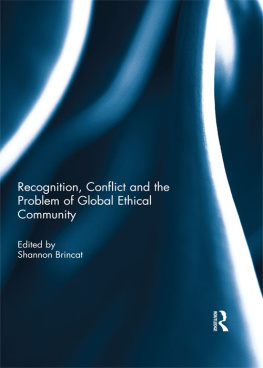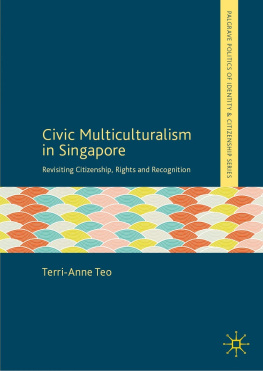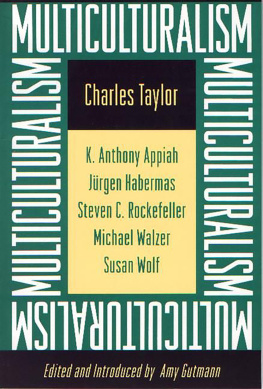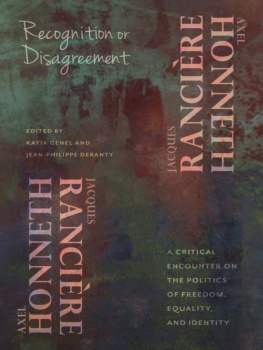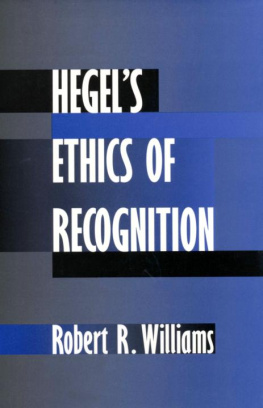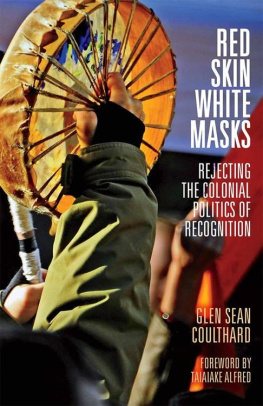THE POLITICS OF MISRECOGNITION
This edited volume offers a timely intervention since it is the first that explicitly shifts the theoretical focus from recognition to misrecognition as a distinctive and fruitful concept for critical theory. Several of the individual contributions demonstrate how a focus on misrecognition can generate new insights into a range of social phenomena including crime, disability and the unequal division of labour.
Shane ONeill, Queens University Belfast, UK
Rethinking Political
and International Theory
Series Editors:
Keith Breen, Dan Bulley and Susan McManus,
all at Queens University Belfast, UK
Committed to a critical and creative exploration of the ways that canonical approaches in political and international theory may be applied to 21st century politics, this series presents pioneering theoretical work on contemporary political issues that both furthers our understanding and shapes exciting new agendas for research. The works featured will advance our appreciation of the relevance of seminal thinkers to the current socio-political context, as well as problematize, and offer new insights into, key political concepts and phenomena within the arena of politics and international relations.
Also in the series
Institutionalizing Agonistic Democracy
Post-Foundationalism and Political Liberalism
Ed Wingenbach
ISBN 978 1 4094 0353 1
Power, Judgment and Political Evil
In Conversation with Hannah Arendt
Edited by Andrew Schaap, Danielle Celermajer and Vrasidas Karalis
ISBN 978 1 4094 0350 0
The Politics of Misrecognition
Edited by
SIMON THOMPSON
University of the West of England, UK
MAJID YAR
University of Hull, UK
First published 2011 by Ashgate Publishing
Published 2016 by Routledge
2 Park Square, Milton Park, Abingdon, Oxon OX14 4RN
711 Third Avenue, New York, NY 10017, USA
Routledge is an imprint of the Taylor & Francis Group, an informa business
Copyright 2011 Simon Thompson and Majid Yar
Simon Thompson and Majid Yar have asserted their right under the Copyright, Designs and Patents Act, 1988, to be identified as the editors of this work.
All rights reserved. No part of this book may be reprinted or reproduced or utilised in any form or by any electronic, mechanical, or other means, now known or hereafter invented, including photocopying and recording, or in any information storage or retrieval system, without permission in writing from the publishers.
Notice:
Product or corporate names may be trademarks or registered trademarks, and are used only for identification and explanation without intent to infringe.
British Library Cataloguing in Publication Data
The politics of misrecognition. -- (Rethinking political and international theory)
1. Identity politics. 2. Minorities--Social conditions. 3. Minorities--Legal status, laws, etc. 4. Politics and culture. 5. Social ethics.
I. Series II. Thompson, Simon, D. Phil. III. Yar, Majid.
306.2-dc22
Library of Congress Cataloging-in-Publication Data
The politics of misrecognition / [edited] by Simon Thompson and Majid Yar.
p. cm. -- (Rethinking political and international theory)
Includes bibliographical references and index.
ISBN 978-1-4094-0169-8 (hbk) 1. Marginality, Social. 2. Minorities--Social conditions. I. Thompson, Simon, 1962- II. Yar, Majid.
HM1136.P65 2011
305.56--dc23
2011015945
ISBN 9781409401698 (hbk)
ISBN 9781315554341 (ebk)
Contents
Simon Thompson and Majid Yar
Simon Thompson and Paul Hoggett
Estelle Ferrarese
Nasar Meer
Laura Brace
Andrew Sayer
Gideon Calder
Majid Yar
Ricardo Fabrino Mendona
Simon Thompson and Majid Yar
List of Contributors
Laura Brace: Senior Lecturer, Department of Politics and International Relations, University of Leicester, UK.
Gideon Calder: Reader in Ethics and Social Philosophy, School of Health and Social Sciences, University of Wales, Newport, UK.
Estelle Ferrarese: Associate Professor, University of Strasbourg, France.
Paul Hoggett: Professor of Politics and Director of the Centre for Psycho-Social Studies, University of the West of England, Bristol, UK.
Nasar Meer: Research Fellow, The Centre for the Study of Ethnicity and Citizenship, University of Bristol, UK.
Ricardo Fabrino Mendona: Assistant Professor, Political Science Department, Federal University of Minas Gerais, Brazil.
Andrew Sayer: Professor of Sociology, University of Lancaster, UK.
Simon Thompson: Reader in Politics, University of the West of England, Bristol, UK.
Majid Yar: Professor of Sociology, University of Hull, UK
Introduction
Simon Thompson and Majid Yar
Opening Remarks
Over the last two decades, there has been a strong revival of interest in the politics of recognition. Although it is sometimes conflated with other ideas, especially the politics of identity and difference, it can be argued that the politics of recognition offers a distinctive and valuable perspective on contemporary politics. This is because the idea of recognition has been deployed not only as a normative conception of justice, but also as a way of understanding a wide range of phenomena, from the formation of individual psyches, through the dynamics of political struggles, to the nature of moral progress. The idea of recognition also invites investigation of the complementary idea of misrecognition. This latter idea should not be understood simply as the opposite of a normative conception of recognition, and therefore as a synonym for injustice. Misrecognition has also been used as the basis for explanations of a variety of phenomena, including the malformation of individual psyches, and the dynamics of struggles for justice. For some thinkers, indeed, the idea of misrecognition has a certain priority over that of recognition since, so they argue, it is the experience of such misrecognition which is the impetus behind struggles for recognition.
Our aim in this book is to place the spotlight on misrecognition. We would argue that, although debates about the politics of recognition have yielded significant theoretical insights into the nature of recognition, its logical and necessary counterpart, misrecognition, has been relatively neglected. While in debates about the politics of recognition, recurrent and almost ritualistic references are made to harms that misrecognition may do to individual and collective autonomy, individuals and groups self-conceptions, self-respect and self-esteem, the precise dynamics of misrecognition and their broader political significance have been for the most part only mentioned in passing. We intend this book to serve as an important corrective to this situation, bringing concerted attention to bear both on the idea of misrecognition and on the dynamics of the struggles which it inspires. In order to do so, this book brings together scholars writing about misrecognition in a number of different intellectual disciplines, including philosophy, political theory, sociology, psychoanalysis, history, moral economy and criminology. These authors explore the politics of misrecognition in relation to a wide array of types of social, political and personal experience, including those of class identity, disability, slavery, criminal victimization and domestic abuse. Through a mediation of theoretical and empirical insights, they offer the most systematic reflection to date on the importance of misrecognition for our understandings of personal and political experience and, indeed, of the moral grammar of social conflicts (Honneth 1995).


